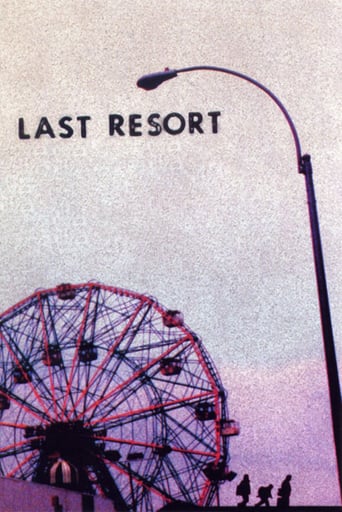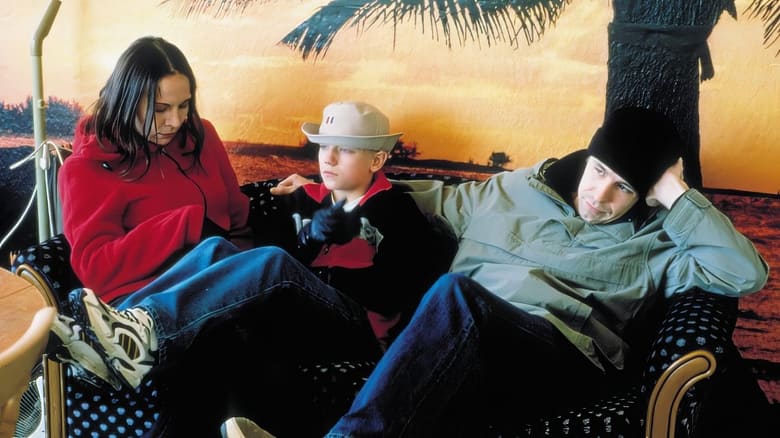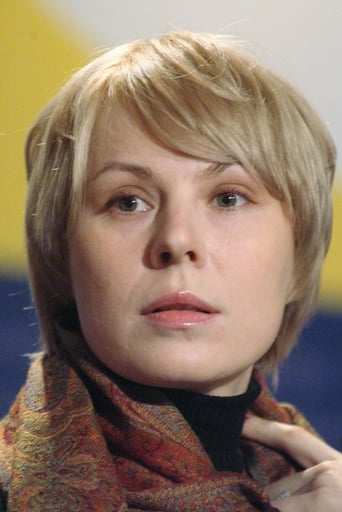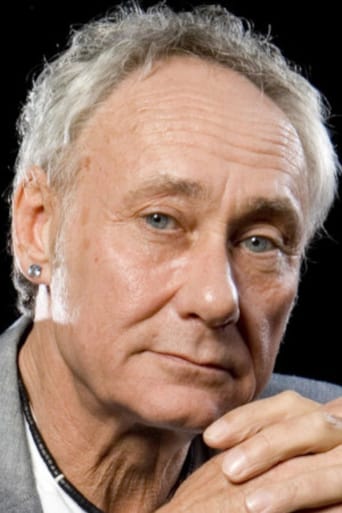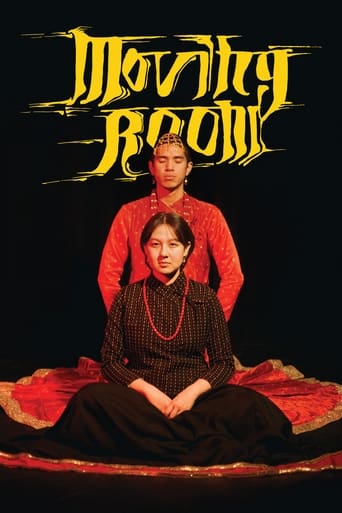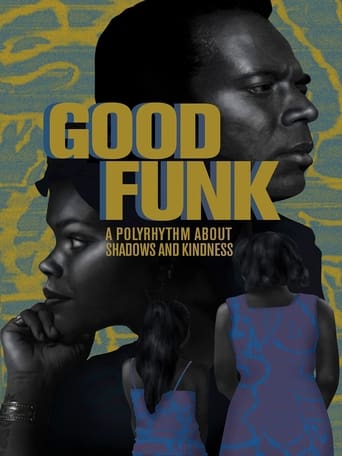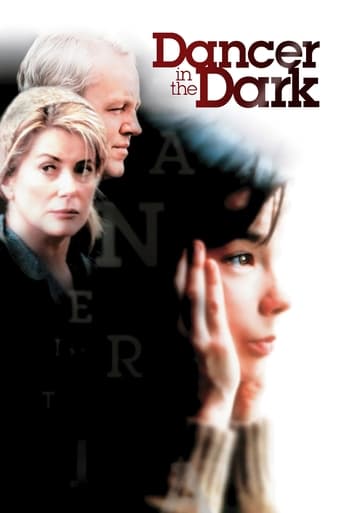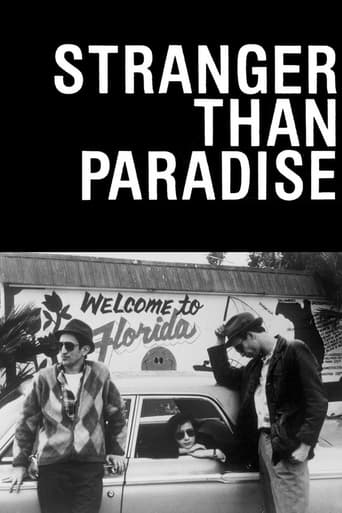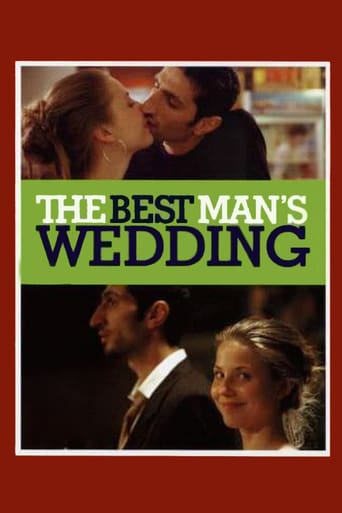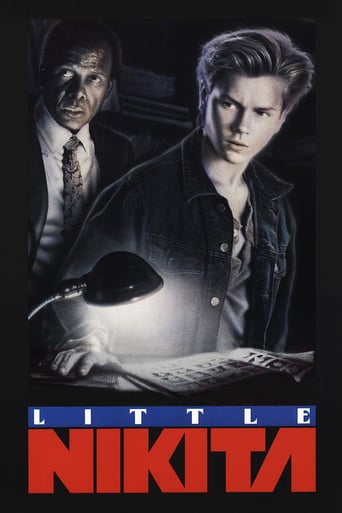Last Resort (2000)
Tanya leaves Moscow with her street-wise 10-year-old son Artiom to meet her English fiancée in London. But after he fails to turn up at the airport, Tanya, intent on staying in England, is forced to apply for political asylum and transferred to Stonehaven, a grimy former seaside resort where refugees are housed. Tanya gradually develops a relationship with an amusement arcade manager, who helps them escape. She must then decide whether to stay with him or return to Russia.
Watch Trailer
Cast


Similar titles
Reviews
Save your money for something good and enjoyable
As Good As It Gets
If the ambition is to provide two hours of instantly forgettable, popcorn-munching escapism, it succeeds.
All of these films share one commonality, that being a kind of emotional center that humanizes a cast of monsters.
Having rented this film completely at random from my college library and placed it in my PS2 having no knowledge of what or who to expect from this film.A grim account of how refugees are treated in Britain, it certainly brought home a lot of feelings i already had about the underlying current of racism in our country, but also showed the character of Alfie (Paddy Considine) to be the typical nice guy, running round and generally being a good bloke.There is a certain degree of stereotype in this (the kids getting drunk so young, the nice British guy just looking for love, the fish out of water who learns to love), but a certain scary aspect of this film is the fact that these stereotypes may just be real life.. everyday, somewhere in the armpit of the country.To sum up, though, those with pre-misconceptions of immigrants and asylum seekers being dirty money launderers will find themselves very horrified to see the truth in this film, as that is exactly what the director has portrayed in this brilliant and (for me) surprise piece of cinema.
A contemporary film that perfectly captures the asylum crisis in 21st century Britain. It's a touching well-acted film, reminiscent of some of the earliest Film Four productions in the 1980s.Ultimately it poses so many questions. Should action be taken, and is here a limit to the number of asylum applications? Why do they come, when they're treated so awfully?
A few days have past since I saw Last Resort and it's still on my mind, especially Paddy Considine's performance. Last Resort is undeniably technically good, shot really well, great locations, top editing etc. The script is good but it's the performances that really make this drama as good as it is. I would love to know how this director got these actors to behave so realistically in every situation for every scene. All three leads were fantastic but Paddy Considine constantly stole the screen and brought humour along with him for the ride. I would recommend you watch this if you ever get chance, it is believable, rich, funny and lovely.
When Jean-Luc Godard made '2 or 3 Things I know about her' in 1967, he was trying to capture the monumental soullessness of consumerist society as embodied in its high-rise tenements and the like. The problem was, as Eric Rohmer noted, Godard's camera couldn't help the ugly look beautiful. Something of the sort happens here. The Russian heroes are sent to a dismal English sea-resort, Stonehaven, in 'the armpit of the universe', its very name suggesting a negating of 'haven', refuge, home, by 'stone', architectural, bureaucratic. This is where all asylum seekers are stranded by the British government, their applications taking over a year to process. It is a literal prison, with fences, vigilant policemen, huge dogs, and surveillance cameras (pointedly compared to the porn monitors). In one alarming scene, the film stock changes to grainy video, following Tanya and Artyom as they try to leave for London. This seems like another stylistic affectation on the drector's part, but is quickly revealed to be part of a huge CCTV panel, with a faceless apparatchik watching every move; the pair are quickly picked up by the police. The streets are littered with bored packets of refugees, endlessly queuing for the one telephone, joylessly playing the gaming machines. As during the war, food is rationed, with vouchers to chippers where the battered fish contain no fish. this is all grim enough. But even if Stonehaven wasn't a refugee camp, it is still a sea-resort off-season, its amusements ostentatiously unused, tediously rusting, just lying there like beached whales. In this atmosphere, any sign of colour or sound - eg the gaming parlour - seems forced and artificial. Tanya's huge tower-block stands like a boil in this armpit. Stonehaven is like an economically deprived, northern town during the 80s, by the sea. Kids have nothing to do but smoke, get drunk , smash things, steal. The one thriving business in the town is an internet porn company. A horrible place, hell frozen over. You can imagine how a Mike Leigh or Ken Loach might film it, mercilessly emphasising its soul-destroying numbness. When Tanya first enters her designated flat, she looks out the window at the arcade, where 'Dreamland' is proclaimed in dull neon. The point seems laboriously obvious - if this is a dream, it is a nightmare, and I want to wake up. And yet, somehow, Pavlikovsky does make Stonehaven a dreamland: if not the land of your dreams, than certainly a land in your dreams. It's not just that these old dilapidated pleasure resorts have a perverse Benjaminian nostalgic beauty, not necessarily a reminder of former happiness, but of a former, failed idea of what might constitute happiness. It's not just that the mundane paraphernalia of a sea resort, such as the bright auburn carousel on top of a gaming machine, or the tacky colour of tatty wallpaper with a Malibu pattern, seem evocative. A lot of it has to do with the old cliche of looking at the everyday through new eyes. The very first sequence, as Tanya and Artyom sit in an airport luggage carousel waiting for the exit light, alerts us to the strangeness of the realism. Even dull shots emphasising immovable tedium, such as the repeated views of the tower-block, becomme magical, because of the different camera angles and the differing quality of the sky light. This light casts a very unEnglish colour over the misery throughout, breathtaking lilacs, blues and olives. The violence of the sea can break up the staticness of the image. Even something as oppressively routine as bingo night is made to seem alien, fantastic. That this is a transforming vision is suggested by Tanya's beautiful painting, which looks like an intricate Eastern tapestry, and suggests how something flat can have resonance. When she leaves, she takes her vision with her, but she leaves the painting with the already marvellously strange Alfie, hopefully galvanising him into a new way of looking at the world, as she/Pavlikovsky did us. That a journey into a strange land so harrowing, that a romance ending up unconsummated and in a shattering act of violence (reminiscent of Shane Meadows' films, but undermining his bleakness) should result in a film so uplifting, so heartening of spirit, is only one of Pavlikovsky's miraculous achievements.

